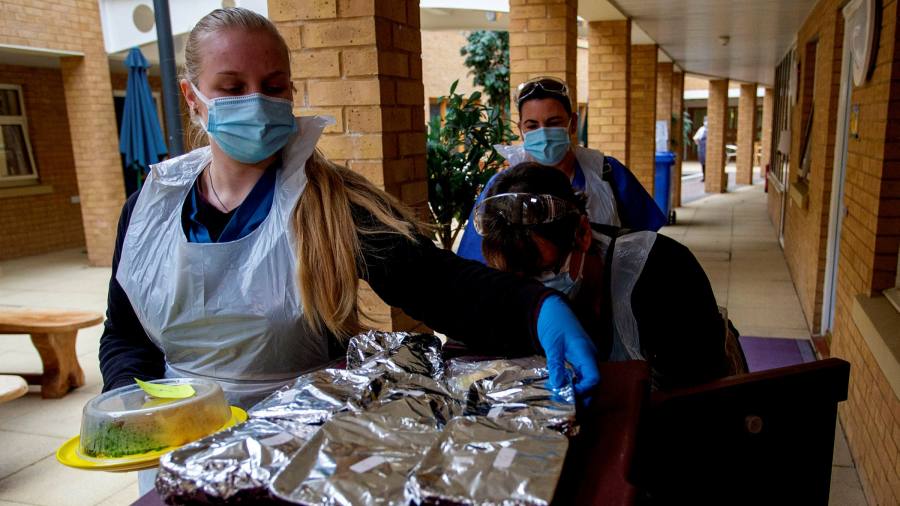[ad_1]
Care workers in the UK who have battled through the pandemic reacted angrily on Friday to a Supreme Court ruling that means they need not be paid the hourly minimum wage for “sleep-in†shifts and must be available to work at night.
The legal challenge revolved around a case brought by Clare Tomlinson-Blake, who cared for two men in their own home supported by charity Mencap. She was allowed to sleep when working overnight and was only woken occasionally but had to keep a “listening ear†for emergencies. She was paid a nightly allowance of £22.35 plus an hourly rate of £6.70 but claimed she should have received the minimum wage rate for the whole shift — even if she was asleep.
A similar challenge was brought by John Shannon, an assistant at a care home who received free accommodation and a fixed weekly amount but in return had to occasionally help a duty night care worker.
The Supreme Court judges dismissed the appeals, referring to recommendations dating back to 1998 by the Low Pay Commission, an independent statutory body, which said sleep-in workers were not due the minimum wage for each hour of their shift, but should receive an agreed allowance.
The ruling came as a relief to care companies and charities, which had warned of claims for back pay of up to £400m and an additional £200m in annual costs for the sector if the cases succeeded, forcing many homes into insolvency.
But it was a major blow for care workers, who feel unfairly rewarded for the extraordinary challenges and high personal risks they have endured during the pandemic. The fear now is of pay cuts because many employers had begun paying the hourly rate for sleep-in shifts after previous court rulings went in favour of the claimants.
“It was nice to be clapped by the nation but that was only temporary. The care workforce should be valued permanently,†Tomlinson-Blake said after the judgment.
The ruling will lead to renewed calls for the government to resolve a funding crisis in the sector, which suffers from chronic problems in recruiting and retaining staff because of the poor pay, demanding working conditions and limited opportunities for career progression.
“Everyone loses until the government intervenes to mend a broken system that relies on paying skilled staff a pittance,†said Christina McAnea, general secretary of Unison, the union that backed the case on behalf of Tomlinson-Blake.
Rhidian Hughes, chief executive of the Voluntary Organisations Disability Group, said the government should instruct the Low Pay Commission to set a fair rate of pay for sleep-in shifts, so that rates do not depend on the approach taken by local authority commissioners.
Edel Harris, chief executive of the Royal Mencap Society, said the charity would continue to pay top-ups for sleep-ins, as it had done since 2017, but called on the government to “put more money into the sector so that we can pay our hardworking colleagues betterâ€.
Giving the ruling, Lady Mary Arden, one of the Supreme Court justices, said a number of previous cases had been wrongly decided by lower courts where judges concluded that sleeping workers should be classed as working for their entire night shift even when unconscious. “This court considers that those cases should be overruled,†she said.
Â
[ad_2]
Source link





